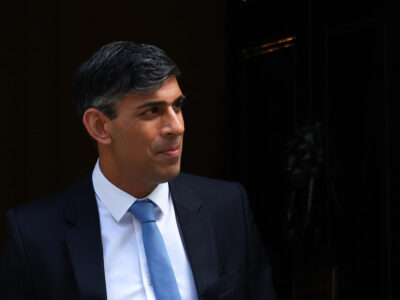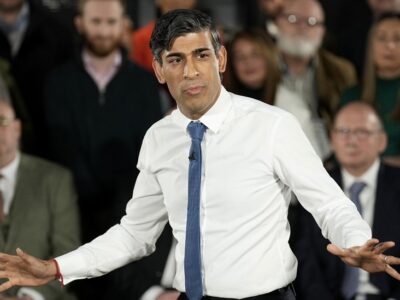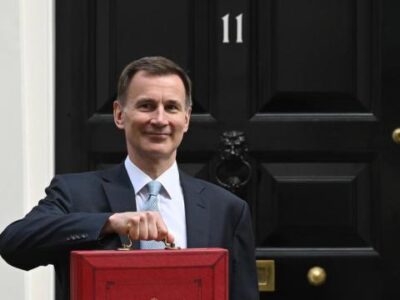Liz Truss is facing a backlash from Conservative MPs after firing her chancellor and announcing a second U-turn on a major economic policy. One former minister told the BBC, “we cannot go on like this indefinitely”. Another Tory MP said the party was in a “state of despair” after the PM’s Downing Street news conference. Truss supporter Christopher Chope said “time will tell” if she had done enough to secure her position, calling those plotting to remove her “hyenas”. Sir Christopher said: “We can’t possibly force another prime minister out of office, we’ve just got to calm down and try to give the prime minister our support.”
In an attempt to end the turmoil in the financial markets, Ms Truss sacked her chancellor and close ally, Kwasi Kwarteng, replacing him with former foreign secretary Jeremy Hunt. She then reversed a key policy to scrap a planned rise in corporation tax from 19% to 25%.
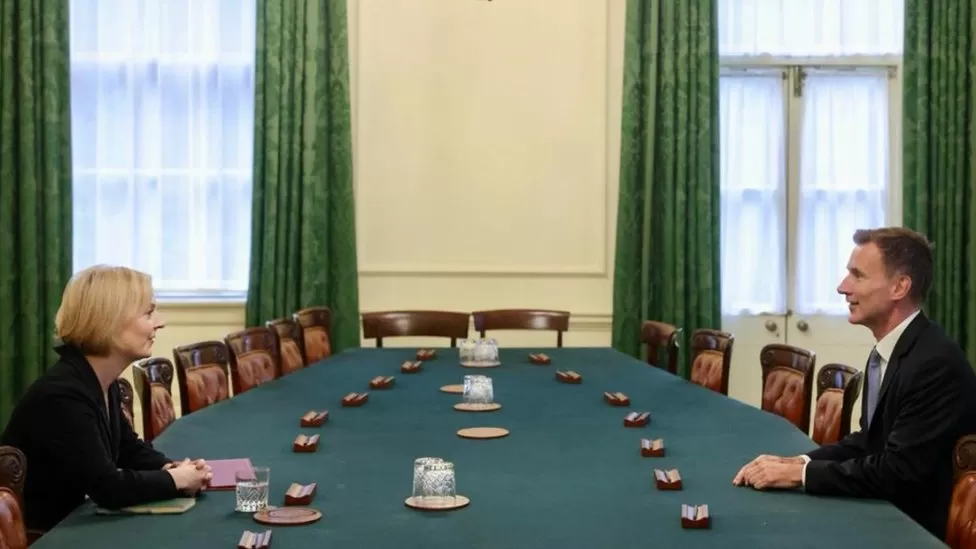
It is the second major U-turn on September’s mini-budget after Ms Truss cancelled her plan to scrap the top rate of income tax earlier this month. At a brief news conference in Downing Street on Friday, the PM dismissed calls for her resignation, saying she was determined to see her promises through. Commenting on the corporation tax U-turn, Sir Christopher added it was “going to be damaging to the prospects for growth” and was “totally inconsistent” with what Ms Truss said during her leadership campaign.
Conservative MP for Coalville, Andrew Bridgen, said he thought there would “be a challenge to Truss in the next few weeks”. Mr Bridgen, who backed Rishi Sunak to be leader, said: “Dissatisfaction is so high in the parliamentary party. “Removing Kwasi Kwarteng when he implemented the policies she asked him to do won’t engender loyalty to her.” Former Conservative leader William Hague meanwhile said her premiership was now “hanging by a thread”.
On a day of fast-moving political developments:
- Mr Kwarteng cut short a visit to the US to hold talks with the prime minister
- By early Friday afternoon, Mr Kwarteng had been sacked as chancellor
- In a letter to the PM, Mr Kwarteng said Ms Truss’s economic vision was “right” for the country
- Responding, Ms Truss said she was “deeply sorry” to lose him and thanked him for putting “the national interest first” by standing down
- Government borrowing costs rose and the pound’s value fell after the PM’s latest U-turn
- Some economists warned that the latest developments might not be enough to restore the UK’s credibility
- Scotland’s First Minister Nicola Sturgeon called for a general election, saying Ms Truss is “unfit to hold the office of prime minister”
Privately many Conservative MPs admit they have gone through despondency and into despair over the past 24 hours. By going back on her promise to cut taxes she has now alienated some of those who backed her in the leadership contest for her “bold” approach. It is not hard to find Tory MPs who think her time is up. One former backer told the BBC Ms Truss had “appointed her successor,” by bringing in Jeremy Hunt as chancellor. “Sadly I think that hastened her demise,” the Conservative MP said.
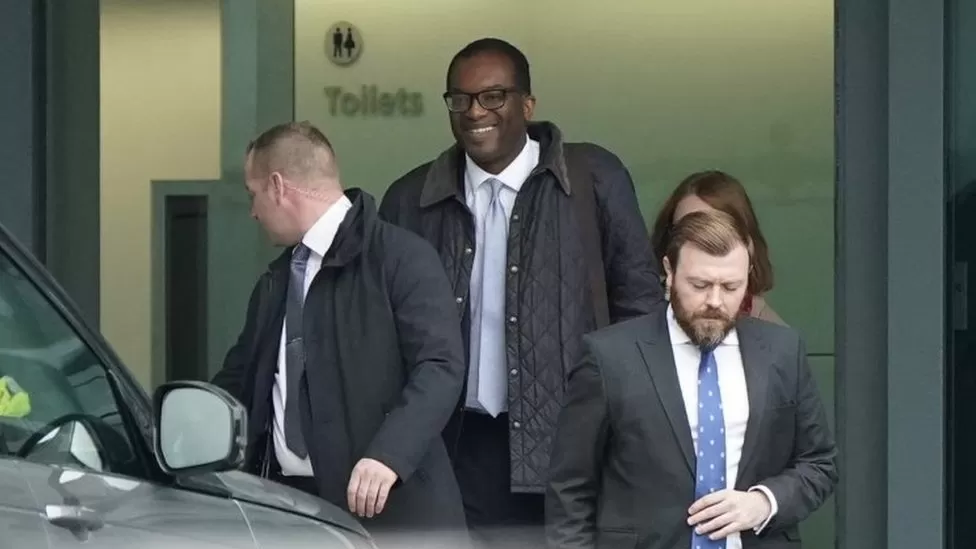
The eight-minute news conference came after a dramatic day in which the prime minister fired Mr Kwarteng after he returned early from a US summit. But as we witnessed with Boris Johnson, if a prime minister wants to cling to power, it can be difficult to remove them. It took the mass resignation of dozens of ministers to persuade him to resign.
Members of Ms Truss’s cabinet are not in open revolt. Many allies have been tweeting support for her and Mr Hunt. former chancellor Nadhim Zahawi tweeted: “It’s time to get Britain moving. We are determined to grow the economy, eliminate the Covid backlog and protect people from Putin’s energy warfare.” In a tweet, Deputy Prime Minister Therese Coffey – a close ally of Ms Truss – said the prime minister was “right to act now to ensure our country’s economic stability”. And Business and Energy Secretary Jacob Rees-Mogg tweeted: “As a government, we must now get on and deliver the pro-growth reforms that will lay the foundations for our future prosperity.”
The Liberal Democrats and the SNP have called for a general election, while shadow chancellor Rachel Reeves said a new government led by Labour is “what this country needs”. But Ms Truss has ruled out a general election until 2024 and with the government’s large majority in Parliament the opposition would find it very difficult to trigger one. On 23 September, Mr Kwarteng unveiled a so-called mini-budget to deliver the prime minister’s vision, announcing the biggest package of tax cuts in decades. But the mini-budget spooked financial markets and sparked a revolt among Tory MPs, who urged the prime minister to drop parts of her economic plan to shore up the UK’s finances. Many in the parliamentary Conservative party think they have to avoid another drawn-out leadership contest where Tory members have the final say.
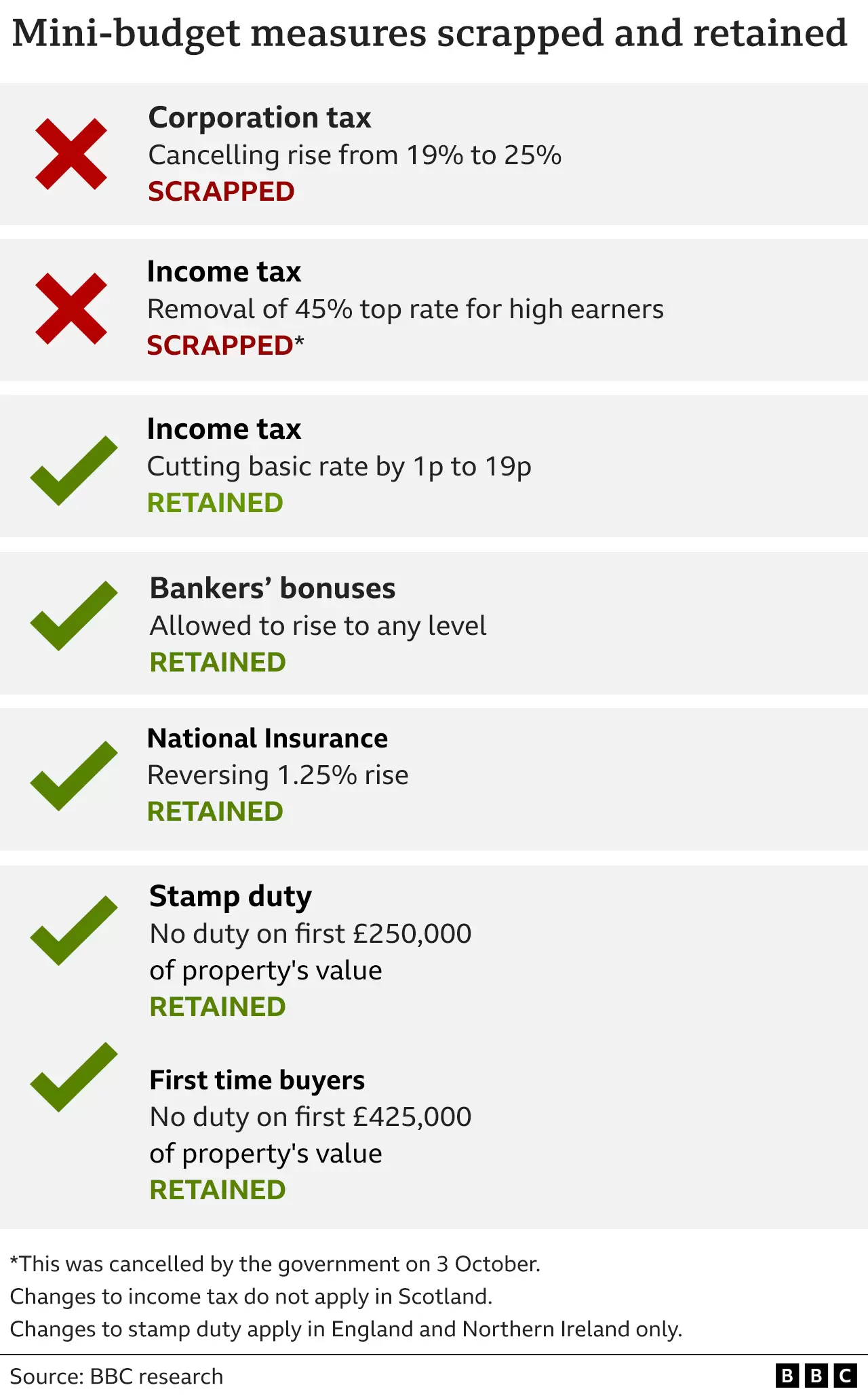
Firstly, it requires others to put their personal ambitions to one side for the greater good. It also requires discipline – something that has been in short supply in Conservative ranks since the turbulent days of Theresa May’s premiership. The idea cropping up most is a joint ticket with former chancellor Rishi Sunak and Penny Mordaunt. But after 12 years in power, under four different leaders, there are many old scores to settle in the Tory Party. Several of Mr Johnson’s supporters would do anything to stop Mr Sunak from taking over. One told the BBC such a move would lead to a split in the party and he would stand himself to prevent a coronation. He said: “The only unity we’d end up with is the unity of the grave. The question is do we jump in now or step back.” It is possible the appointment of her new chancellor has bought some time but a leader with diminishing authority will struggle to bring this fractious party together.
![]()



